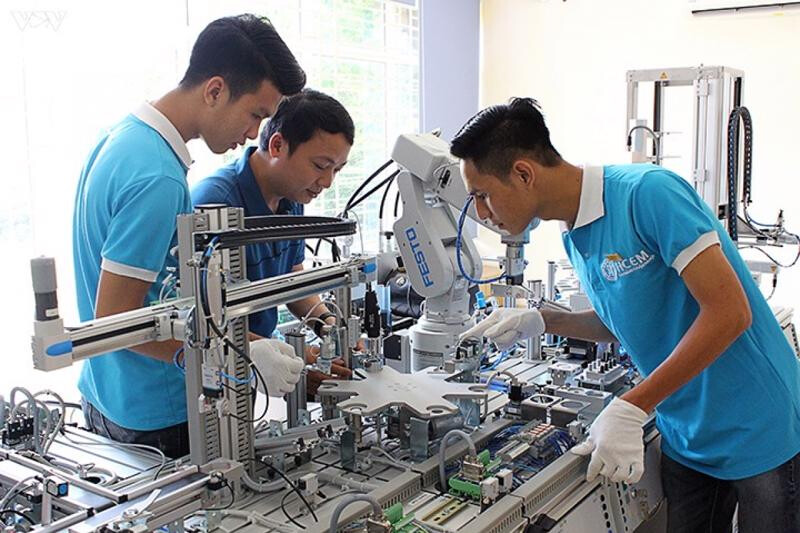
The Vietnamese Ministry of Labor, Invalids, and Social Affairs (MoLISA) has proposed new criteria to identify low-income workers as part of the 2021-2025 National Target Program on Sustainable Poverty Reduction. This move is aimed at streamlining support measures, particularly vocational training assistance for individuals struggling to make ends meet.
MoLISA is currently seeking public feedback on a draft decree that would amend and supplement several provisions of Government Decree No. 07/2021/ND-CP, which defines the multidimensional poverty standard for the 2021-2025 period.
Among the proposed amendments, MoLISA suggests adding criteria for identifying low-income workers eligible for vocational training support under the National Target Program on Sustainable Poverty Reduction. This will serve as a basis for local authorities to review and implement vocational training support for these individuals using program funds.
While the National Target Program on Sustainable Poverty Reduction identifies low-income workers as a target group for vocational training support, the lack of specific guidelines for identifying these workers has hindered the implementation of vocational training support in 48 localities despite receiving allocated program funds.
According to reports from 73 ministries, sectors, and localities, as of the end of June this year, approximately 167,980 workers from poor, near-poor, and poverty-escaping households had received vocational skills training. However, due to the absence of clear criteria, low-income workers still remain unsupported.
With one year left in the implementation period of the National Target Program on Sustainable Poverty Reduction for 2021-2025, MoLISA has proposed defining low-income workers as those with a monthly per capita income of less than VND 2.25 million (US$88.57) in rural areas or less than VND 3 million (US$118) in urban areas. This equates to 53.96% of the rural average and 47.92% of the urban average, respectively.
According to the General Statistics Office's 2023 Living Standards Survey, the average monthly per capita income in rural areas was VND 4.17 million (US$164), and in urban areas, it was VND 6.26 million (US$246). The proposed income threshold for low-income workers is only 48-54% of the average per capita income in 2023.
MoLISA estimates that over 3.4 million individuals with monthly per capita incomes below the proposed thresholds for rural and urban areas are not classified as poor or near-poor households and have not received vocational training.
The draft decree specifies that these criteria will only apply within the scope of the National Target Program on Sustainable Poverty Reduction for 2021-2025.
[Copyright (c) Global Economic Times. All Rights Reserved.]






























